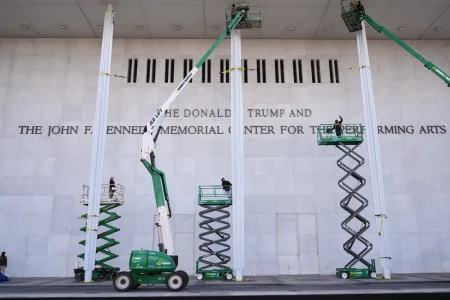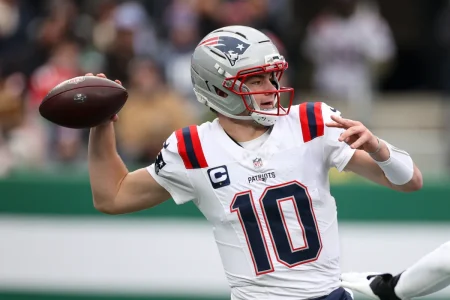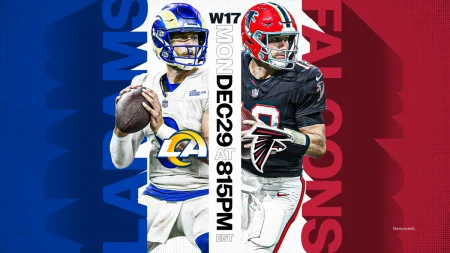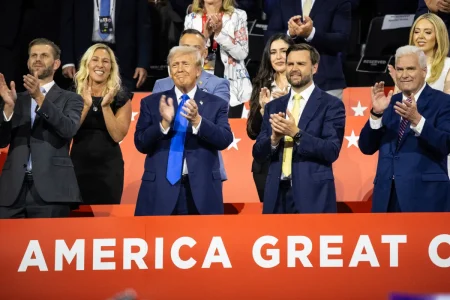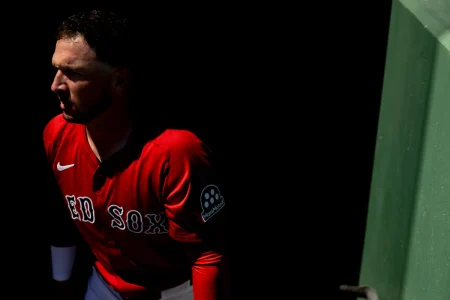Tony Stewart, a name synonymous with speed, grit, and triumph in the world of motorsports, has recently stepped back from NASCAR, leaving behind a legacy etched in racing history. A three-time NASCAR Cup Series champion and the only driver to conquer both IndyCar and NASCAR’s highest echelons, Stewart’s impact on the sport extends far beyond his driving prowess. His co-founding of Stewart-Haas Racing (SHR) in 2002 with Gene Haas solidified his influence, transforming SHR into a powerhouse team that has nurtured champion drivers and secured numerous victories. However, despite his deep-seated connection to the sport, Stewart’s decision to sell his team’s charters and relinquish his direct involvement marks a significant shift, prompting reflection on his illustrious career and the evolving landscape of NASCAR.
Stewart’s recent remarks at the Sullivan Old Town BBQ offer a glimpse into his feelings about departing from the sport he helped shape. While acknowledging the inevitability of change and progress, Stewart confessed that what he misses most is the human element, the camaraderie and connections that defined his era of NASCAR. He expressed a sense of nostalgia for a time before technology drastically altered the sport, a sentiment that resonates with many longtime fans who yearn for the simpler days of racing. His words reflect a longing for the personal bonds and shared experiences that once characterized the NASCAR community.
The decision to step away from NASCAR, Stewart revealed, was a complex one, influenced by a confluence of factors. Personal life changes, including his marriage to Leah Pruett and the birth of their child, undoubtedly played a role, demanding a realignment of priorities. Furthermore, the financial realities of modern NASCAR, particularly the increasing difficulty in securing sponsorships, presented mounting challenges for SHR. The loss of key sponsors and the added financial strain forced a reevaluation of Stewart’s continued involvement. An unsuccessful attempt to bring Kyle Larson onboard in 2020 further solidified his growing disillusionment with the direction of the sport.
Stewart’s reflections on NASCAR’s evolution reveal a nuanced perspective. He acknowledges the sport’s enduring appeal and its capacity to adapt, predicting its long-term survival. However, he also expresses reservations about the current trajectory, suggesting a disconnect between the sport’s current direction and his personal vision for NASCAR. This sentiment underscores the inherent tension between preserving tradition and embracing innovation, a constant struggle within any evolving sport.
Stewart’s departure leaves a void in NASCAR, but his legacy remains firmly entrenched in its history. From his thrilling on-track battles to his shrewd business acumen in building SHR, Stewart has left an indelible mark. His reflections offer a poignant reminder of the human connections that underpin the sport and the challenges posed by its ever-changing landscape. Even as NASCAR continues to evolve, Stewart’s contributions will continue to resonate, shaping the narratives of future generations of drivers and fans.
As NASCAR navigates the complexities of a rapidly changing world, Stewart’s story serves as both a testament to the sport’s enduring allure and a cautionary tale about the challenges of balancing tradition and progress. His candid reflections offer valuable insights into the pressures faced by teams and drivers in the modern era, highlighting the financial realities and the difficult decisions that must be made in the pursuit of success. While Stewart may have stepped away from the forefront of NASCAR, his influence will continue to be felt, shaping the sport’s future trajectory and serving as a reminder of the passion, dedication, and camaraderie that define the world of stock car racing.







